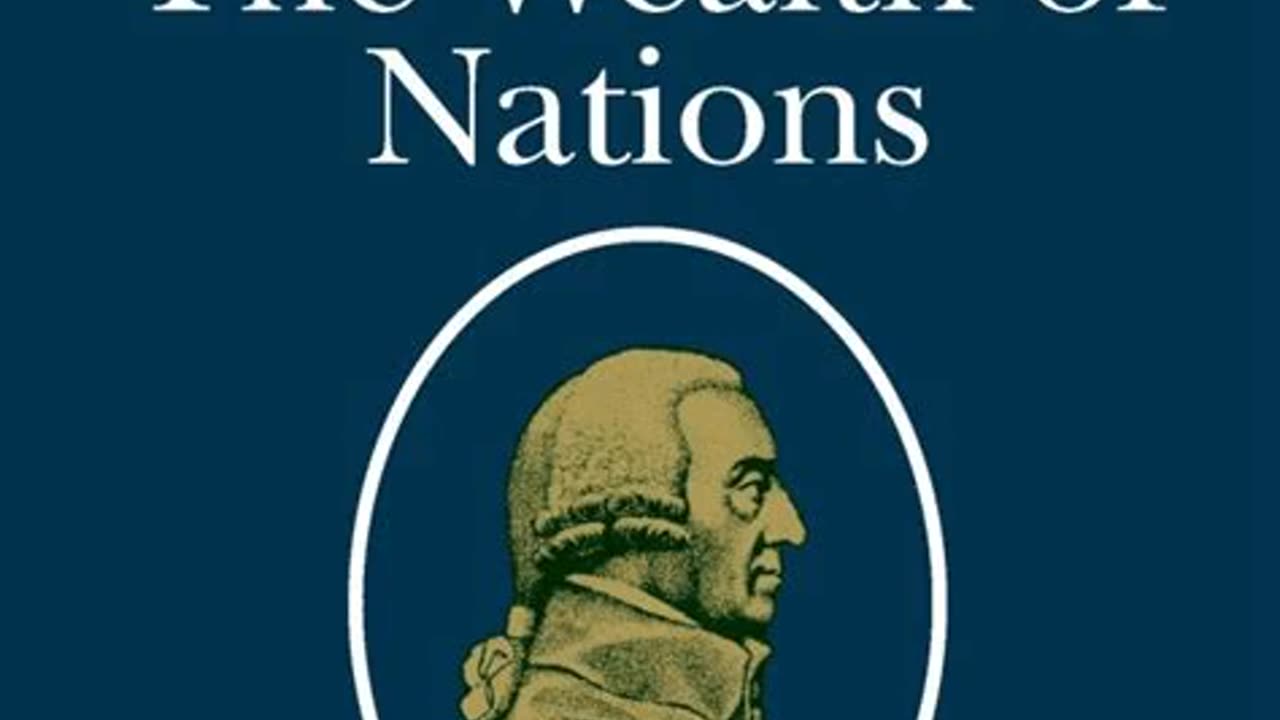Premium Only Content

The Wealth of Nations by Adam Smith | Summary and Critique
Buy Here: https://amzn.to/3BVI45G
"""The Wealth of Nations"" is a seminal work of economics written by the Scottish philosopher and economist Adam Smith in 1776. In the book, Smith argues that economic prosperity and growth are best achieved through free markets and the division of labor.
Smith is considered the father of modern economics because of his groundbreaking insights into the workings of the economy. He believed that the pursuit of self-interest in a competitive market would lead to the efficient allocation of resources and the growth of wealth for individuals and society as a whole.
In ""The Wealth of Nations,"" Smith discusses various economic concepts, such as the division of labor, the role of the government in the economy, and the benefits of free trade. He also introduced the idea of the ""invisible hand,"" which suggests that the pursuit of self-interest by individuals can lead to a better outcome for society as a whole, even though the individual may not have that intention.
Critics have praised ""The Wealth of Nations"" for its influential and enduring contributions to economics, such as the concept of the division of labor and the benefits of specialization. Smith's ideas have influenced economic policies and theories for centuries, and the book remains one of the most important works in the field of economics.
However, the book has also been criticized for its narrow focus on self-interest and market efficiency, which some argue neglects the importance of social welfare and the role of government in promoting the public good. Some have also pointed out that Smith's assumptions about the rationality of economic actors and the perfect competition in the market are not always realistic, and that his ideas may not be applicable to all economic systems.
Overall, ""The Wealth of Nations"" remains a foundational work of economics, whose ideas continue to be debated and discussed by economists and policymakers around the world. While it has been subject to criticism, its insights into the workings of the economy have had a profound impact on economic theory and policy."
-
 2:27:48
2:27:48
Joker Effect
8 hours ago2025 already started up with a bang! Alex Jones, Bree, Elon Musk, Nick Fuentes, Fousey
47.2K5 -
 LIVE
LIVE
Vigilant News Network
13 hours agoEXPOSED: Secret Government Plot to Deploy Aerosolized ‘Vaccines’ Using Drones | Media Blackout
1,668 watching -
 1:13:49
1:13:49
Josh Pate's College Football Show
10 hours ago $7.22 earnedSemifinal Predictions: OhioSt v Texas | Notre Dame v PennSt | Playoff Cinderella | Alabama’s Future
67.7K2 -
 27:56
27:56
The Why Files
1 day agoThe Seventh Experiment: Lacerta Reveals the Truth of our Creation
126K67 -
 45:53
45:53
hickok45
21 hours agoSunday Shoot-a-Round # 262
49.4K19 -
 4:52:32
4:52:32
Rotella Games
1 day agoGrand Theft America - GTA IV | Day 1
88.8K7 -
 8:16:19
8:16:19
Joe Donuts Gaming
21 hours ago🟢Fortnite Live : Chill Vibes Lounge!
101K9 -
 38:43
38:43
Standpoint with Gabe Groisman
17 hours agoEp. 63. Terror Strikes the Nova Music Festival. Ofir Amir
165K53 -
 36:04
36:04
Forrest Galante
1 day agoPrivate Tour of an Indian Billionaire’s Secret Wildlife Rescue Center
130K19 -
 9:37
9:37
Space Ice
1 day agoMorbius Is The Perfect Movie, Everyone Just Lied To You - Best Movie Ever
114K32